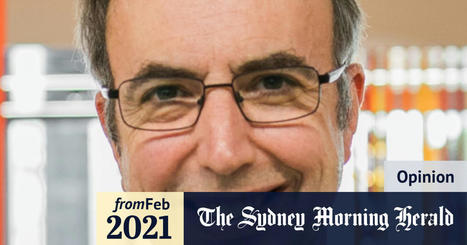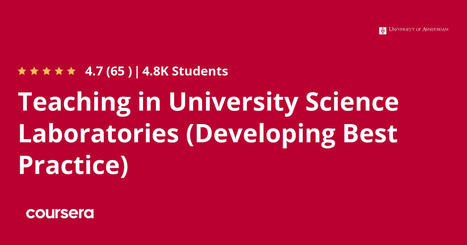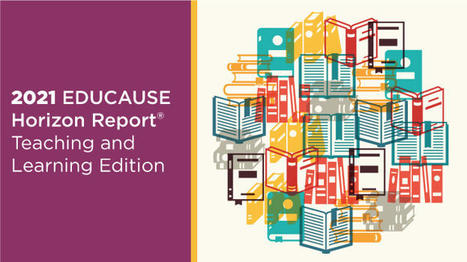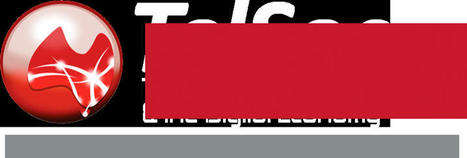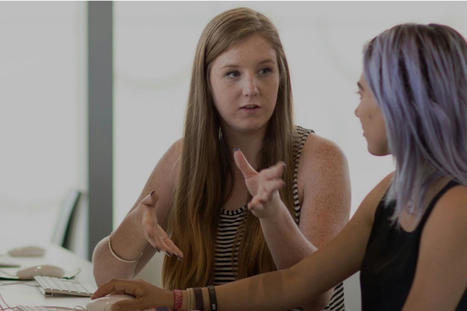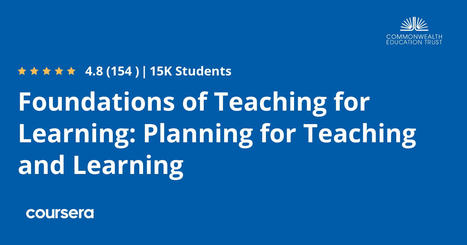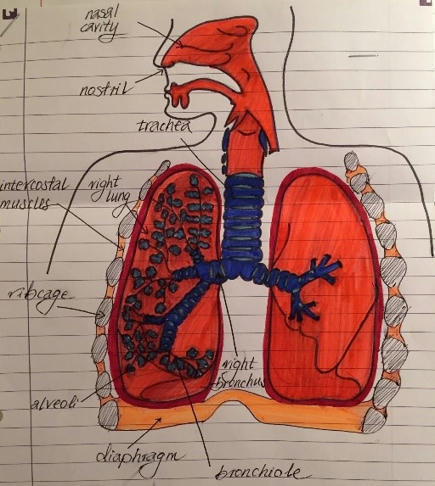A new analysis of more than 317 studies found flipped classrooms to be tremendously successful although a partially flipped classroom might be best of all
Follow, research and publish the best content
Get Started for FREE
Sign up with Facebook Sign up with X
I don't have a Facebook or a X account
Already have an account: Login

Higher Education Teaching and Learning
12.4K views |
+0 today
Follow
Filter by date
Tags
Issues and priorities arising around academic development, teaching and learning in Higher Education.
Curated by
Learning Futures
 Your new post is loading... Your new post is loading...
 Your new post is loading... Your new post is loading...
What does it mean to use play as a method for engaging students? In this video, Alison James discusses the various benefits of play in the classroom.
danah boyd is partner researcher at Microsoft Research and founder of Data & Society.
Workplace stress among academics has long been higher in Australia and New Zealand than overseas, and research suggests the flow-on impacts on students could fuel a vicious cycle of negative feedback.
a short video summarizing some of the most important characteristics of students today - how they learn, what they need to learn, their goals, hopes, dreams, what their lives will be like, and what kinds of changes they will experience in their lifetime. Created by Michael Wesch in collaboration with 200 students at Kansas State University.
Peter Mellow's insight:
The power of a wiki! Collaboration. Remember context, this video was made in 2007. Have things changed that much?

Peter Mellow's curator insight,
July 15, 2021 7:47 PM
The power of a wiki. Cooperation and Collaboration. Remember context, this video was made in 2007. Have things changed that much?
Dr Michael Wesch, Associate Professor of Cultural Anthropology and Lecturer at Kansas State University (USA), presents an interesting perspective on the traditional lecture environment and its suitability for modern students in this TED talk.
“I must say, what contributed to my wellbeing is that the lectures are good and they (lecturers) are very well prepared when coming to lecture us…” The words of an 18-year-old undergraduate Biological Sciences student When considering student wellbeing, we often think of innovative interventions, the quality of psychological student support services and the need…
"Learning outcomes are measurable statements that articulate what students should know, be able to do, or value as a result of taking a course or completing a program" (1). This post responds to a reader’s question, “Is there any evidence to support sharing written learning outcomes prior
Micro-credentials can be an important option for some people, but they are far from the main game for universities.
In 2021, universities are now grappling with the complex question of “what teaching and learning needs next?”. Interestingly, one of the most talked-about possibilities is increased flexibility as to whether students study on campus or on-line. However, the way we teach on campus and the way we teach on-line are not the same. Instead, we need flexibility; flexibility to create the best learning experiences, whatever they may be, however long they go for, and via whatever mode or platform works best for each activity.
Offered by University of Amsterdam. This course is developed to improve the effectiveness of laboratory classes in higher education. It aims ... Enroll for free.
Some students may wonder why they bothered returning to campus. Others are struggling online. But lecturers who do engage students think deeply about how they do it, using all available tools. 
Rosie Stedman's curator insight,
June 13, 2021 5:41 AM
This is an interesting outlook that follows the viewpoint embedded in this unit that pedagogy comes before anything else.
The 2021 EDUCAUSE Horizon Report profiles key trends and emerging technologies and practices shaping the future of teaching and learning, and envision |
Earlier this year, the ANU Service Experience team (previously Experience Accelerator) interviewed remote overseas students about their online learning experience (find out more about the project). While this human-centred design (HCD) research revealed at times a depressing picture of the remote student experience, it also generated a collection of practical suggestions directly from students for how their online experience could be improved. Today, we will share with you their tips and tricks for fostering connection at the start of the semester.
From
jl4d
This article offers a global overview of the burgeoning field of micro-credentials and their relationship to lifelong learning, employability and new models of digital education. Although there is no globally accepted definition of micro-credentials, the term indicates smaller units of study, which are usually shorter than traditional forms of accredited learning and courses leading to conventional qualifications such as degrees. The paper aims to provide educators with a helicopter view of the rapidly evolving global micro-credential landscape, with particular relevance to higher education leaders, industry stakeholders and government policy-makers. It addresses five questions: (i) what are micro-credentials? (ii) why micro-credentials? (iii) who are the key stakeholders? (iv) what is happening globally? and (v) what are some of the key takeaways? Drawing on a European-wide perspective and recent developments in The Republic of Ireland, the paper concludes that micro-credentials are likely to become a more established and mature feature of the 21st Century credential ecology over the next five years.
Photo by Austrian National Library on Unsplash In the so-called “factory schools” that originated in early 19th-century Prussia education was provided by the state and learning was regimented. Before that formal education was reserved for the elite and those who could afford it. But as industrialisation changed the way people worked, it created the need…
TEDxKC talk synopsis: Today a new medium of communication emerges every time somebody creates a new web application. Yet these developments are not without disruption and peril. Familiar long-standing institutions, organizations and traditions disappear or transform beyond recognition. And while new media bring with them new possibilities for openness, transparency, engagement and participation, they also bring new possibilities for surveillance, manipulation, distraction and control. Critical thinking, the old mainstay of higher education, is no longer enough to prepare our youth for this world. We must create learning environments that inspire a way of being-in-the-world in which they can harness and leverage this new media environment as well as recognize and actively examine, question and even re-create the (increasingly digital) structures that shape our world.
Some faculty members will continue to teach online and hybrid courses this fall. Here’s what they’ll need.
From
telsoc
Swinburne Online provides a model of online education that adheres to state of the art research. It uses Gilly Salmon's five stage model of online learning combined with a supportive environment for learners. The venture to date has seen a rapid development of online courses but has not been without challenges.
Peter Mellow's insight:
“Teaching online is not just a technical and administrative process that allows content to be delivered on to a computer.” (Grimley, M. 2013).
It's free, self-paced and highly recommended for anyone in their first few years of university teaching.
In this conversation style interview, Margo Griffith and Professor Mark Brown, Director of the National Institute for Digital Learning at Dublin City University have a wide-ranging discussion on the European approach to micro-credentials. Their discussion explores the mindset that education is a 'public good' in Europe, how micro-credentials support lifelong learning in that setting and his experiences in helping to establish a whole-of-Europe framework.
From
rtalbert
Writing clear, measurable learning objectives for lesson seems simple; it isn't. Here are some steps that can make it easier.
Offered by Commonwealth Education Trust. The Foundations of Teaching for Learning programme is for anyone who is teaching, or who would like ... Enroll for free.
Paul A. Kirschner, Mirjam Neelen, Tine Hoof & Tim Surma This blog is the fourth one in a series of eight blogs, originally written by Tine Hoof, Tim Surma & Paul Kirschner, and published on excel.thomasmore.be. In 2015, Richard Mayer and Logan Fiorella published their book ‘Learning as a Generative Activity’ describing eight generative learning strategies.…
Peter Mellow's insight:
‘while drawing, learners actually (meta)cognitively process the information. It doesn’t matter if the drawing looks nice or not, as long it’s doing its job: explicating/demonstrating the content.’
|









